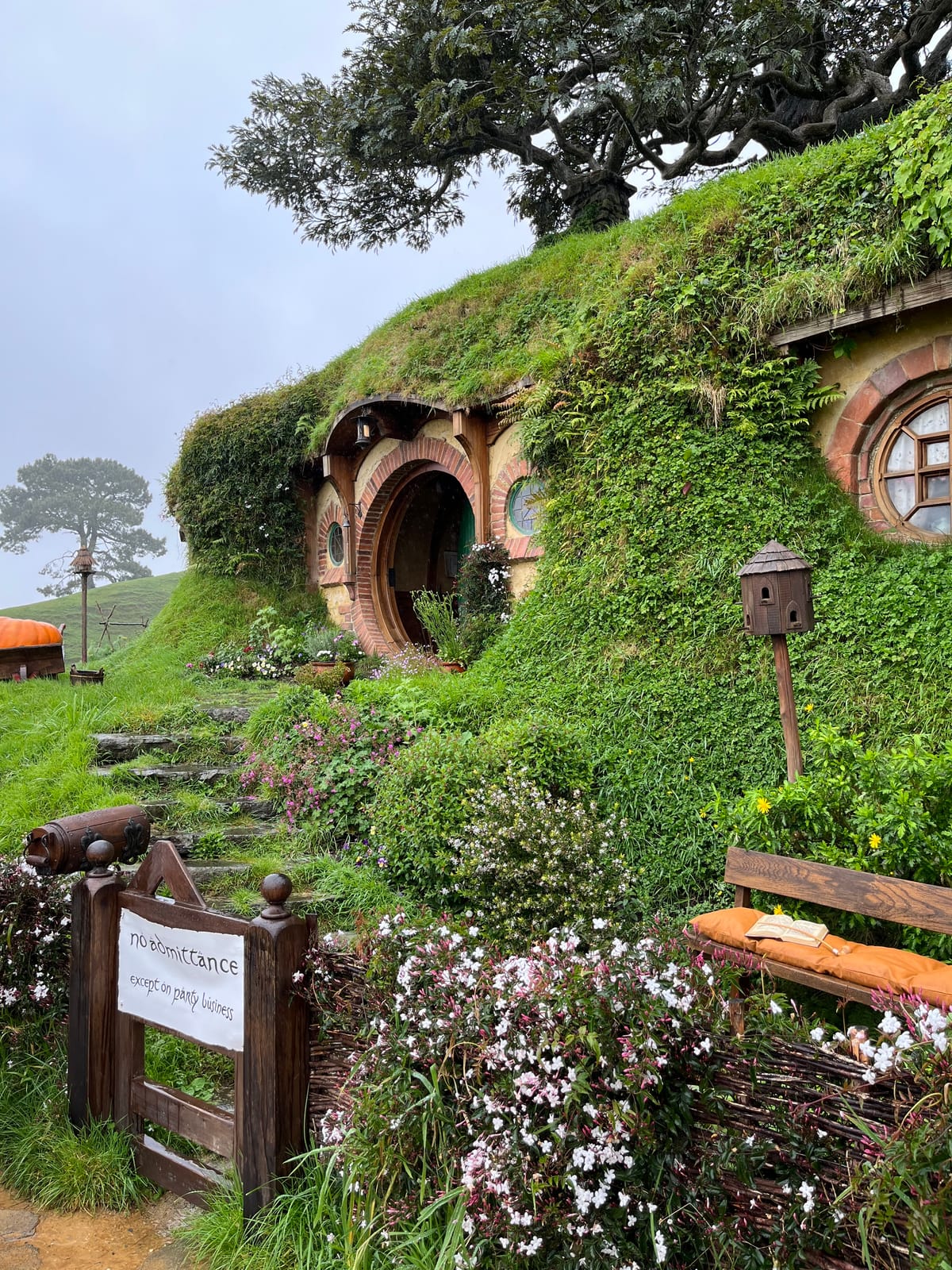The New Shadow: Tolkien's advice on living in the times

I have a tattoo on my left forearm - a single line written in a curling script, with hovering dots like flowers blooming. People sometimes mistake it for anything from Arabic to Hebrew, to Sanskrit.
It's not - it's written in Quenya, one of the languages J.R.R. Tolkien devised for Middle-earth.
My little slice of Elvish ink reads from Tolkien's Fellowship of the Ring, in a moment when Frodo feels pretty damn overwhelmed by all the terrible things going on:
“I wish it need not have happened in my time," said Frodo.
"So do I," said Gandalf, "and so do all who live to see such times. But that is not for them to decide. All we have to decide is what to do with the time that is given us.”
'The time that is given to us' has been on my arm since 2017, shortly before meeting my now wife, and during a time when, finally, I started to really understand what I wanted to do with my life.
In the household of my childhood, Tolkien's world of Middle-earth was something not unlike a sacred text. We had several copies of the Lord of the Rings and the Hobbit, in print and as a massive binder of CD's that contained the audiobooks.
For me, and many others, Tolkien's work is not just entertaining - but a font of wisdom.
After all, Tolkien lived a pretty remarkable life: an incredibly accomplished linguist, and creator of one of the greatest (and often mimicked) fiction series ever, he also married his childhood sweetheart. And, he served in the first World War, including in assaults during the Battle of the Somme.
Tolkien's experience in war was ghastly. He contracted trench fever after being set upon by lice, and witnessed the horrors of German gas attacks. In a letter to his son, Tolkien would later recount:
"By 1918 all but one of my close friends were dead."
These experiences would shape Tolkiens view of the world, and his later works. The Lord of the Rings, after all, is a warning about the nature of humanity, of evil, and power.
"The most improper job of any man ... is bossing other men. Not one in a million is fit for it, and least of all those who seek the opportunity."
You've probably read The Lord of the Rings, or watched the films. You may not know, however, that Tolkien began - at least three times - a sequel.
It was called The New Shadow and it took place a century after the fall of Sauron, long after the armies of Orcs had been banished from the land, and good had won out over the evil desire to oppress others.
In The New Shadow, the land of Gondor is at peace and the evils of the past are forgotten, except by those few old enough to remember. The current king, meanwhile, is struggling to rule in a world that is growing evermore corrupt and agitated. In response, a conspiratorial cult begins to arise, emulating the orcs that once ravaged the land, and worshipping the evil that once threatened all.
Tolkien wrote only a handful of pages of The New Shadow, and it contains only a tense conversation between an old man and a young man, about the state of the world and of humanity - and ends with an invitation to a cult meeting. The older man warns the younger:
'Deep indeed run the roots of Evil.' Said Borlas, 'and the black sap is strong in them. That tree will never be slain. Let men hew it as often as they may, it will thrust up shoots again as soon as they turn aside.'
It would be understandable to think Tolkien's point was that evil is inevitable and indomitable. After all, he had experienced first hand the atrocities of what humans are capable of in the first World War, and later signed up to help as an (unused) codebreaker in World War Two.
But, I believe, Tolkien's point is that it is foolish to think that we have defeated the Lord of the Rings and now everything will always be safe and happy, or that we have done away with dangerous ideas of the past and they should never rise again.
Ensuring that the best parts of humanity win out over the worst parts is a work ever ongoing.
And, I suppose, that's really the best thing we can do with the time given to us.